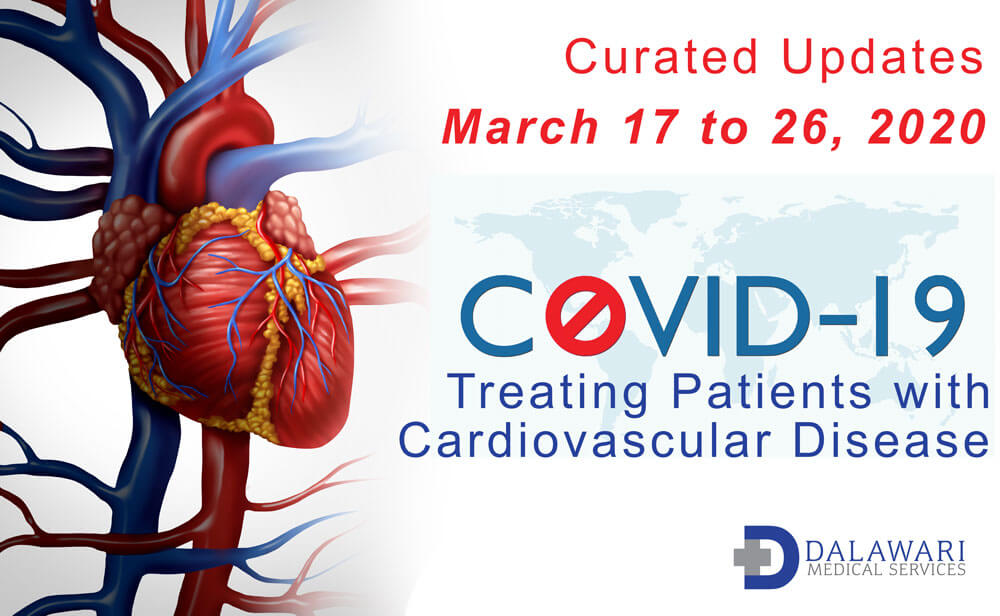COVID-19 & CARDIOLOGY UPDATES: March 17 to 26

As a response to the Coronavirus/Covid-19 outbreak, many medical associations and organizations have released statements specifically related to treatment for cardiovascular patients.
As we have little to no clinical data at this time, position statements and articles from reliable sources are especially important.
These resources provide credible and trustworthy information. Many if not most, speak to the need for more detailed research and data, to help guide us as we develop new standards of practice to ensure optimal care based on clinical practice rather than speculation.
VIDEO: What Cardiologists Need to Know About COVID-19
COVID-19 Hydroxychloroquine Treatment Brings Prolonged QT Arrhythmia Issues
COVID-19: Telemedicine in Cardiology & Medical Imaging
Do you have questions about a medical case or need help understanding treatment plans and options?
Health & Patient Advocacy | Medical Case Review
Medical Expert Witness
Dalawari Medical Services - Medical Consulting
Click here to Contact Us via email or Call + (804)-991-4109



